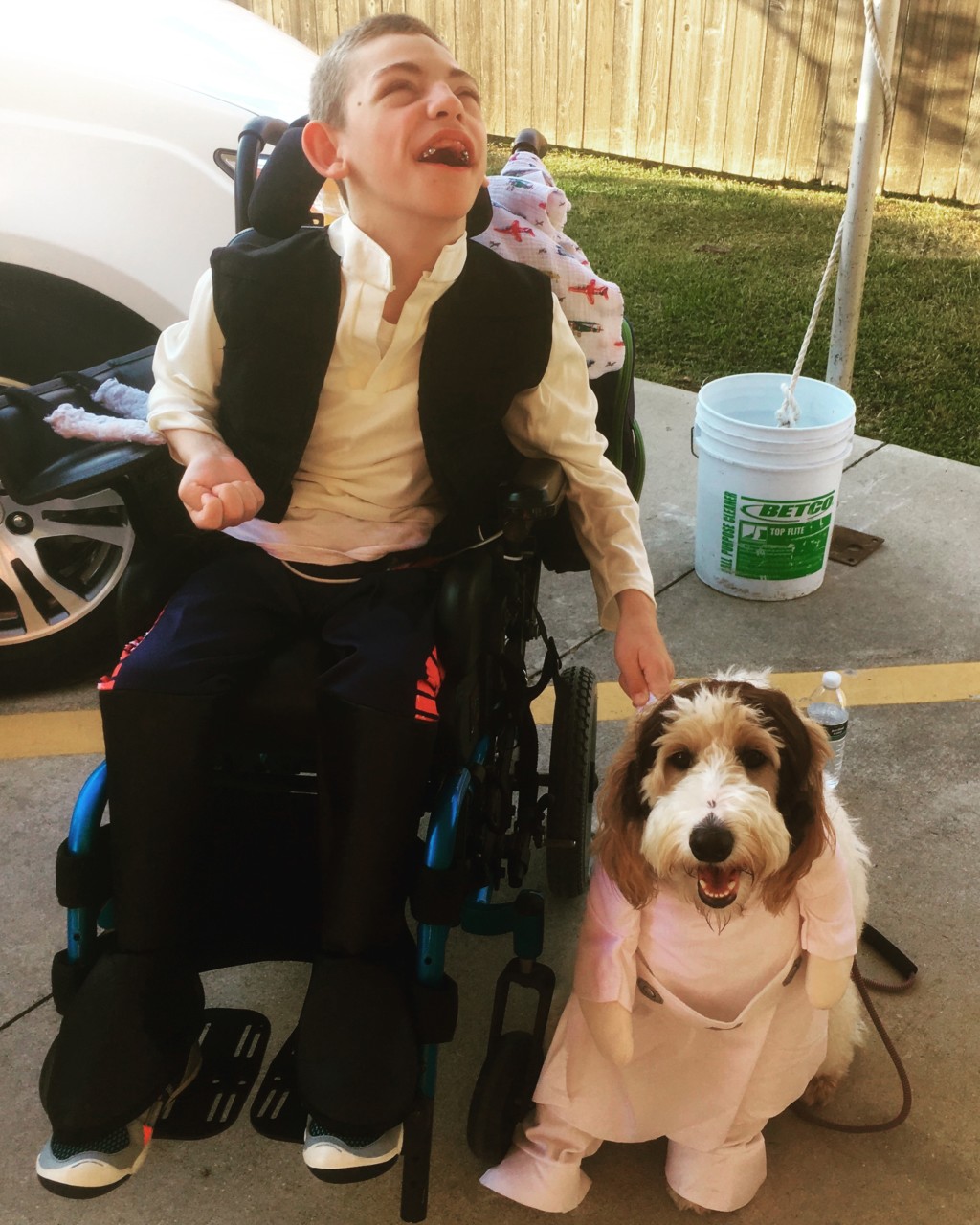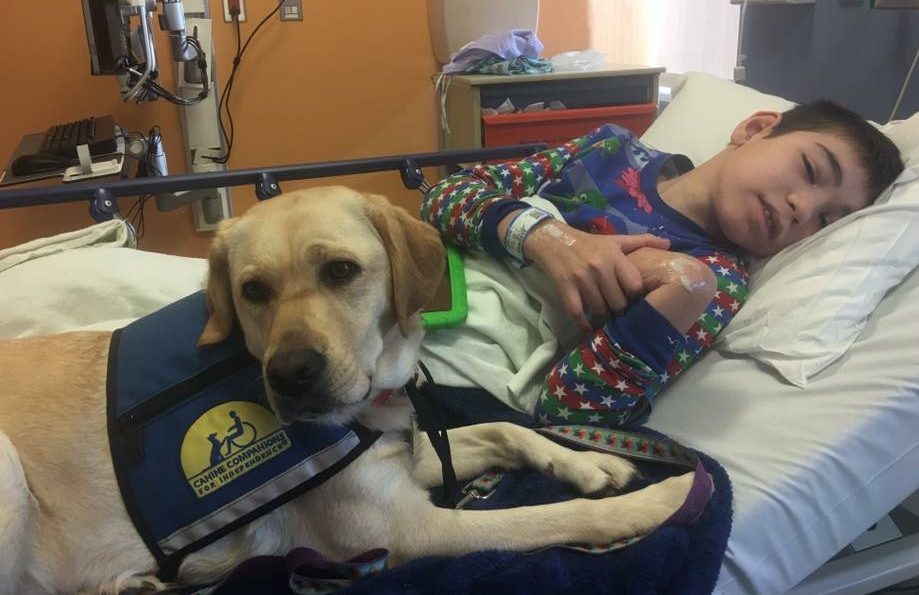Picture it.
You are casually strolling the aisles of the grocery store racking your brain for that one item you forgot to write down while wrangling your kids to stay nearby when you turn the corner and spot it. This unfamiliar sight is quietly sitting next to a little boy who is holding his mom’s hand while she peruses the frozen vegetables. This unicorn of grocery shoppers has big brown eyes, white fluffy hair, and is basically just begging you to come pet him. This sweet fuzzy sight is a service dog for a child with autism.


Service dogs are becoming more and more popular for people with disabilities, and it has become blatantly obvious to me that the majority of the population has no idea about the importance of service dogs or how they should behave when around them. Perhaps these people have never been told and truly don’t understand why we service dog handlers are so bossy. Until now…
It is my hope that with this list others can get a tiny glimpse into our life and the lives of so many others who depend upon these dogs on a daily basis. While your love for precious pooches may draw you to that service dog nicely lying under the table, I ask that you tuck that love away and respect the handler and their disability.

1. Keep calm. It’s just a dog.
I cannot tell you how many times we’ve rounded a corner and the person we meet on the other side shrieks in horror at the sight of my son’s ferocious golden doodle service dog. Please, keep calm.
2. Service dogs are not pets; they are working dogs.
While your dog at home might be super smart and hails from the best bloodline, if he hasn’t spent thousands of hours training for a specific job for a person with a disability then he is NOT a service dog, he’s a pet. Service dogs are working dogs with important jobs. They get the same love that pets do, but to their person with a disability they are more than a pet, they are a lifesaver every single day. And no, we are not lucky that we get to bring our dog every where we go because my kid’s disability goes with us too!
3. There’s a human on the other end of that leash.
That sweet wittle face and wet wittle nose are just dying to be rubbed, right? Yeahhh, no. That service dog might catch your attention first, but please know before you start making goo-goo eyes at the DOG, there is a HUMAN on the other end of his leash. Maybe strike up a conversation with him or her or the parents first, eh?
4. Well behaved service dogs are allowed everywhere their handler goes.
Hospitals. Restaurants. Cinemas. Stores. Schools. Parks. Government Buildings. EVERYWHERE. Yep, a service dog that is controlled and doing her job is protected by law. On the flip side if someone brings in a dog claiming it is service dog and it cannot be tamed, controlled, or decides to “water” the potted plant in the corner then NOPE, it’s not protected by law. The behavior of the dog in every circumstance is a sure sign to tell if it is truly a service dog.
5. Having a service dog is not an invitation to discuss private medical information.
You see a young lady walking with her service dog right by her side. You look her up and down, wondering what disability she could possibly have that would call for a service dog. Many, actually, which is why we should remember not all disabilities are visible. Deaf. Seizures. Diabetes. Autism. PTSD. Mental Illness. The list goes on. Curiosity is natural, but remember not everyone wants to openly discuss their medical information with perfect strangers.
6. Service dogs get plenty of time to be a dog.
Although service dogs truly love their job and protecting their person, they do enjoy their time off the clock. There’s no need to express your sorrows over someone’s service dog always having to work because what you don’t see is them playing fetch, snuggling on the couch, or their Zoomies all throughout the house when they are home with their person.
7. Distracting a service dog can be a matter of life and death.
Distractions = petting, whistling, kissey sounds, clapping, yelling, screaming, pouncing, too much eye contact, blocking, or anything that involves you attempting to get the service dog’s attention. What you must understand is that distracting a service dog can hinder their ability to perform their job. For example, while you are whistling to a service dog and they are looking at you wondering why you’re messing with them they might not alert their person to a seizure they’re about to have, or while you are slipping them a piece of your pizza on the corner of the street the service dog isn’t aware that their person has wandered off and is approaching oncoming traffic.
8. Keep your hands to yourself.
For real, y’all. I have yet to go on an outing with my son without someone petting his dog without permission. Please be considerate and ask the handler before petting a service dog, and don’t be offended if you are told no. After all it’s not about you, it’s about the person with the disability.
A service dog is working day in and day out hoping for minimal human distractions on their outings with their person. Please be respectful to the human on the other side of that leash and don’t distract their service dog from doing what they do best: protecting their person with every ounce of their fluffy being.





















